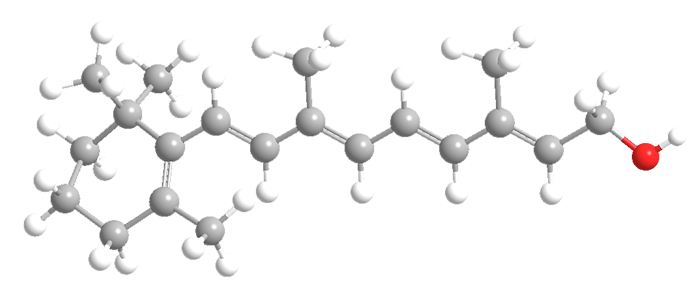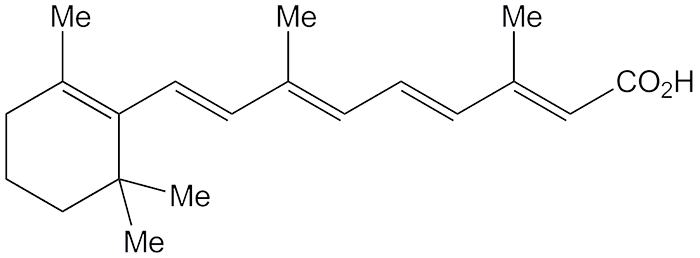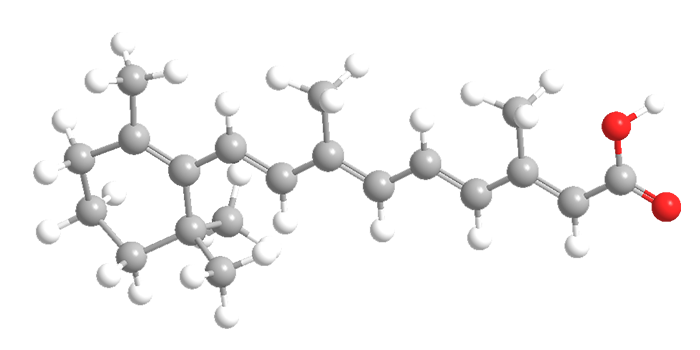



Vitamin A, or retinol, is produced from carotenoids in the livers of animals. It is also broadly defined as a series of compounds that have structures similar to retinol. It is essential for growth and development, and for strong vision. Retinoic acid is a metabolite of vitamin A that mediates the vitamin’s functions.
Recently, H. Veiga-Fernandes and co-workers at the Institute of Molecular Medicine (Lisbon) discovered that vitamin A is not only necessary for animals’ health, but it also may be essential for setting up the immune system before birth, when fetuses are in utero. They found that pregnant mice with vitamin A–poor diets produce babies with small lymph nodes and consequently weak immune systems. Retinoic acid produced from the mother’s vitamin A activates a gene that produces a hormone receptor that mediates the growth of lymphoid cells.

Learn more about this molecule from CAS, the most authoritative and comprehensive source for chemical information.
Molecule of the Week needs your suggestions!
If your favorite molecule is not in our archive, please send us a message. The molecule can be notable for its current or historical importance or for any quirky reason. Thank you!
Stay Ahead of the Chemistry Curve
Learn how ACS can help you stay ahead in the world of chemistry.

